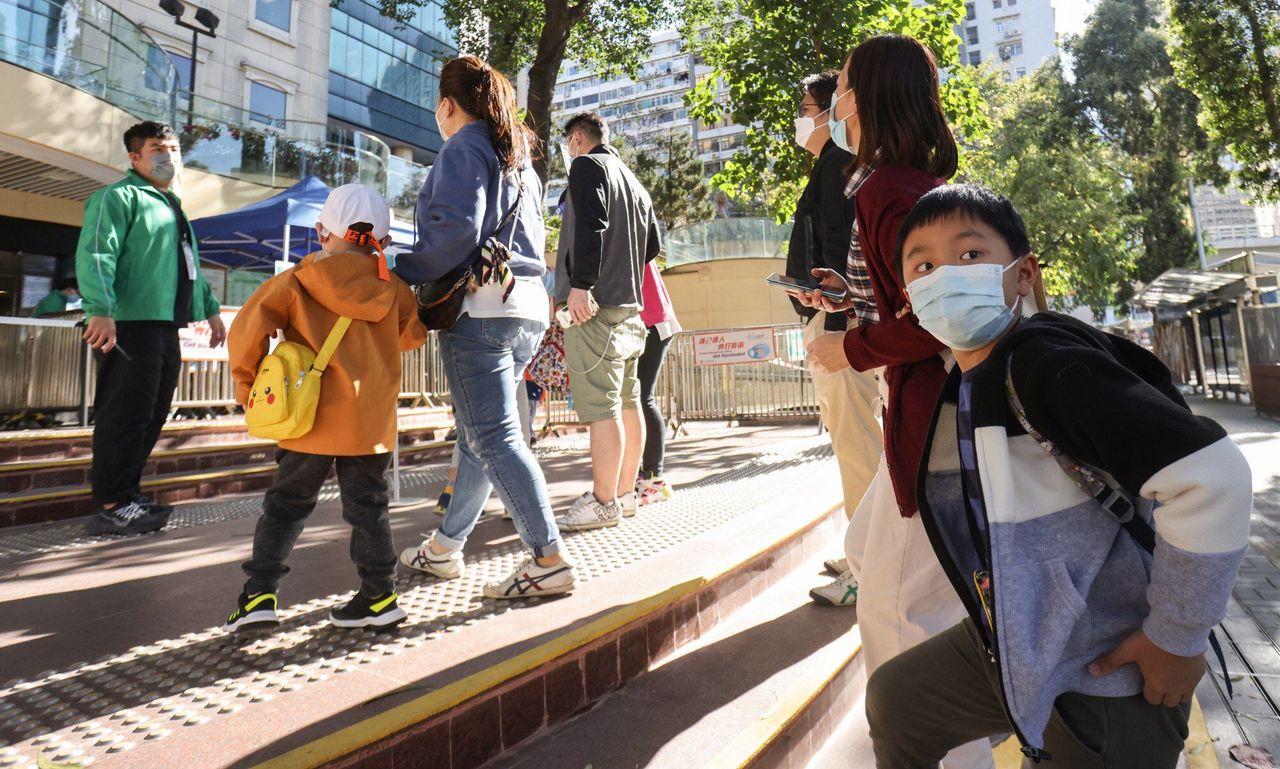Hong Kong News

‘Covid strain has higher death rate among hospitalised Hong Kong children than flu’
An Omicron sub-variant has led to a sevenfold higher death rate among hospitalised children than influenza, while 15 per cent of young patients had developed neurological complications, according to a study by the University of Hong Kong (HKU).
Based on the observation of 1,147 children aged 11 or below admitted to hospital between February 5 and 28, the study concluded that Omicron BA.2 resulted in seven times more child fatalities than influenza, while no youngsters had reportedly died from the original coronavirus strain or the Alpha variant.
The sub-variant currently accounts for 86 per cent of all new coronavirus cases reported globally, according to the World Health Organization.
“The intrinsic severity of Omicron BA.2 in children who had no past Covid-19 or vaccination is not mild, and in fact, they had higher odds of [paediatric intensive care unit] admissions, mechanical ventilation and oxygen use,” it said.
But the research team at HKU said the recorded 0.35 per cent fatality rate was likely an “overestimate” resulting from many Omicron-infected children with mild symptoms being cared for at home instead of being admitted to hospital.
 Health experts have urged parents to vaccinate their children to reduce the likelihood of contracting Omicron BA.2.
Health experts have urged parents to vaccinate their children to reduce the likelihood of contracting Omicron BA.2.
The report also cited the Department of Health’s estimated death rate of 0.02 per cent for the same age group during the study period, which also included cases that were not hospitalised.
Dr Mike Kwan Yat-wah, an honorary clinical associate professor of paediatrics and adolescent medicine at HKU, who co-authored the study, explained that the research team was finetuning its statistical figures in response to input from other reviewers and the final calculation would be adjusted.
The research paper, which was preprinted in the medical journal The Lancet on March 21, has not been peer-reviewed.
Contracting Omicron BA.2 was also more likely to produce neurological complications than other coronavirus variants and influenza viruses, the HKU study found, resulting in more seizures.
According to the report, about 15 per cent of hospitalised youngsters who had contracted the sub-variant developed neurological complications and more than 6 per cent had respiratory complications, with 21 children being sent to paediatric intensive care.
The paper also analysed the Covid-related deaths of four hospitalised children, of whom three had good past health. A total of eight fatalities were recorded among youngsters during the fifth wave, according to the Hospital Authority.
Among the four analysed deaths, the youngest was an 11-month-old girl, who was previously diagnosed with Covid-19 alongside six other family members, including her twin sister.
The report also recorded the deaths of two toddlers, a three-year-old girl and a four-year-old boy, and found the pair had died from conditions that affected their brains. Both cases had been sent to the coroner for further examination.
“Why [Hong Kong] children under five years old infected with Omicron seem to have such unexpected severity could be due to the lack of exposure to seasonal human coronaviruses in the past two years, resulting in a lack of cross-reactive immunity,” the report said.
Professor Kwan said the bodily harm caused by Omicron BA.2 was unlike that of previous Covid-19 variants reported in Hong Kong.
“We have seen seizures that lasted up to 30 minutes, swollen vocal cords, changes in consciousness and acute brain inflammation. All these are unique to this Omicron sub-variant,” he said. “It is particularly worrying because seizures lasting that long might lead to brain hypoxia.”
Kwan said that researchers were particularly worried about children contracting the sub-variant, with the strain capable of causing “severe damage to their central nervous system and respiratory system”.
“Children should get vaccinated. Research has shown that two jabs of the BioNTech vaccine or three jabs of the Sinovac vaccine can already provide sufficient immunity against Omicron,” he said.
Dr Agnes Leung Sze-yin, an assistant professor of paediatrics at the Chinese University of Hong Kong, called the research “valuable”, with the paper being one of the first to study Omicron BA.2.
“It retains the original Omicron variant’s transmissibility, but we can see from this paper that it seems as potent as Delta,” she said.
Leung said the study was a warning of the effects the sub-variant could have on a patient’s neurons, in addition to causing “abnormalities within brain cells”.
Dr Sara Ho Yuen-ha, a chief manager at the Hospital Authority, urged parents to get their children vaccinated against the coronavirus as soon as possible.
She also called on pregnant women to get vaccinated as newborns could gain immunity against Covid-19 for up to six months after birth if their mothers were inoculated.
On Thursday, about 60 per cent of children aged between three and 11 had received their first dose of a Covid-19 vaccine, while only one in five of the age group had been fully inoculated.











